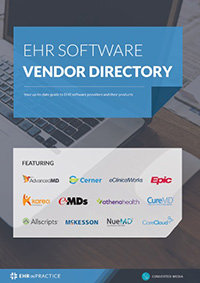Five tools to help you increase patient engagement
With staggering incidence of chronic disease in the population (about half of all adults—117 million people—had one or more chronic health conditions according to the CDC) practices have realized that quality care and by association the treatment and prevention of chronic disease requires individuals participate knowledgeably and actively in their health care, a process otherwise known as patient engagement.
As stated in an article published in the journal Patient Education and Counseling. “People must make informed choices about insurance and clinicians, coordinate communications among providers and manage complex treatments on their own. Not doing so risks preventable illness, suboptimal outcomes, and wasted resources.”
Now, with sophistication technological resources at their disposal, practices can leverage these resources to increase patient engagement.
The New England Journal of Medicine recently conducts a survey which offers strong insight regarding what patient engagement tools practices believed were offering the greatest value in increasing patient engagement. The following list represents five tools, based on these survey data, to help your physicians increase patient engagement.
1. Biometric wireless devices
In the NEJM survey, 85% of respondents reported that biometric wireless devices, such as wireless scales and glucometers that are able to collect patient health information and transfer it to an EHR, offered significant benefit in patient engagement particularly in the area of improving patient population health.
Guide: 50 features to look for in your next EHR
2. Apps for smartphones
75% of respondents reported that healthcare apps for smartphones could offer a significant benefit in patient engagement. What these apps could be used for varies based on the need and the setting. For example, an app could be used to help patients manage their medications and access their records which could be particularly useful for patients struggling with chronic conditions
3. SMS appointment reminders
70% of overall respondents and 77% of executives indicated that SMS-based appointment reminders systems were identified as the most effective tool for patient engagement. Given the revenue drain that arises from patient no-shows, appointment reminders provide an easy way for patients to be reminded of their appointments.
4. Social media as a patient education tool
Connections fostered through social media can be used as a way to encourage patient engagement and improve health behaviors. The NEJM survey confirms this among practices with 99% of respondents acknowledging that social networks are potentially useful in healthcare delivery, especially for chronic disease management (named by 85% of respondents) and promotion of healthy behaviors such as weight loss, physical activity, and healthy eating (78%).
5. Medication adherence
Data collected by the World Health Organization indicate that about half of patients with chronic diseases do not take their medication as prescribed. Accordingly, tools that can remind patients to take their medications can provide significant benefits in improving patient population health. As expected respondents in the NEJM study confirmed this sentiment (66%) indicated that medication adherence reminders that communicate with patients as the applications best suited for patient engagement technology tools.
Patient engagement is a key goal of a practice’s healthcare technology strategy. However, as the array of tools available on the market and surveys such as the NEJM survey discussed here indicate, simply offering a patient portal (the lowest rated engagement tool in the NEJM survey) as the main form of engagement will not offer much in the form of engagement. Rather, practices should think of how specific tools can assist in meeting patient population health goals.
Free white paper

50 features to look for in your next EHR
A comprehensive guide to EHR features and how they can benefit your practice

Featured white papers
Related articles
-

Key EHR innovations to improve patient experience
Exclusive guest blog investigating how recent EHR developments have affected patients
-

Five key features to look for in an EHR patient portal
Make an informed decision on the features your practice needs for its patient portal.
-

How EHR can improve patient retention (or make it worse)
Learn about the impact EHR systems can have on patient retention in your practice; for better or ...




